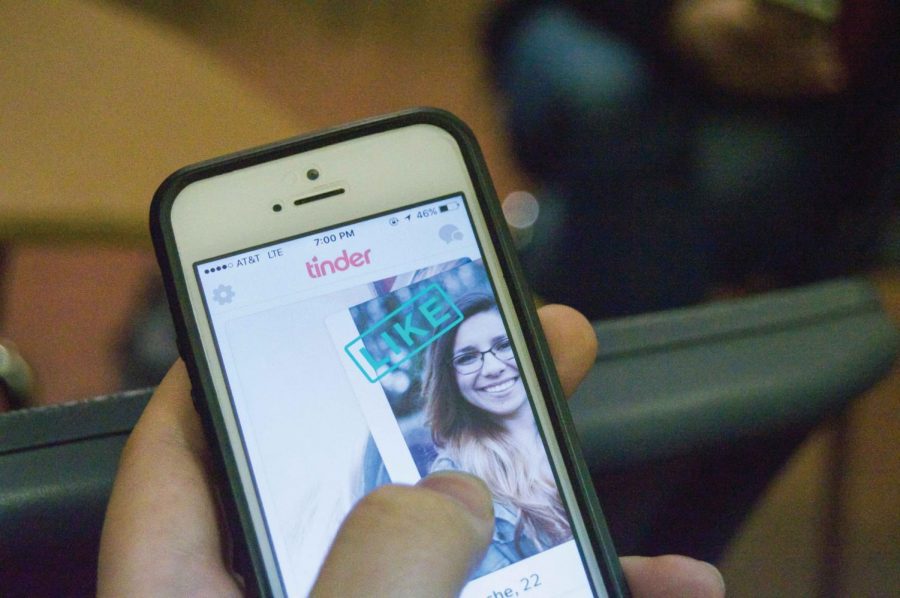Match made in Tinder
February 12, 2016
In the digital age, meeting people is as simple as a swipe of the finger.
The phone app Tinder is one of many new creations that exist to assist people with the messy business of social interaction and connecting people for “Friends, dates, relationships, and everywhere in between,” according to the company’s website.
Daniel Faltesek, assistant professor in new media communications at OSU said that the app might not be used for its original intentions.
“When I see (people) using (Tinder) publicly, (they) are using it to look at other people,” Faltesek said. “Not necessarily even to make contact with them.”
Faltesek added that as Tinder has risen to prominence, research regarding the joy of looking, also known as Scopophilia, has more to do with Tinder than any type of dating research or study.
“It’s basically a way for them to get enjoyment from doing this voyeuristic activity,” Faltesek said.
For OSU students, the topic of Tinder garnered some mixed feelings.
Jacqueline Logsdon, environmental economics and policy major, said that while the she liked the idea of the app, if somebody is looking for a serious relationship, she would not suggest using Tinder.
“It’s a pretty shallow app,” Logsdon said. “But some people have success with it so I don’t judge.”
Coleman Swenson, a mechanical engineering major, questioned Tinder’s credibility as a platform for establishing relationships.
“It’s more of a game now,” Swenson said. “You don’t go there for anything serious.”
With Valentine’s Day slowly approaching, students weighed in on whether or not they thought that services like Tinder would see increased traffic. Emily Wells, a sociology major, agreed with the idea, saying that desperation will fuel a large amount of people getting on for the purposes of finding a match.
“It’s just the time of year, people will think, ‘I’m alone, I should find someone,’” Wells said.
However, professors such as Faltesek and Jeffrey Hale, instructor in new media communications at OSU, are not as certain.
“I don’t think Tinder is reactionary to an event like that,” Hale said. “Valentine’s day is a Hallmark holiday. It’s a celebration of love and an opportunity to sell greeting cards, candy and flowers. Tinder is about meeting your interpersonal needs for whatever that may be.”
Faltesek said that while it is possible for the use of Tinder to increase, it is also likely that people without dates will avoid that form of social exposure.
“They might not want to subject themselves to the idea of social judgement by using Tinder at that time,” Faltesek said.
In addition to the uncertain views on its possible spike in popularity, the professors and students discussed the possibility of its future, and whether or not Tinder is just another fad that will go away. Hale said that one of the most important aspects is how Tinder makes money, and Faltesek took a more historical view.
“People have enjoyed looking at other people for 5,000 years at least, I think we’re gonna keep doing it,” Faltesek said.











































































































